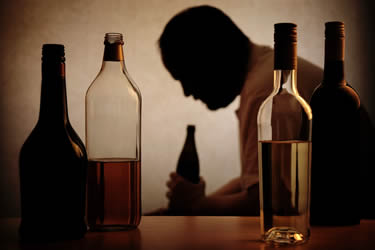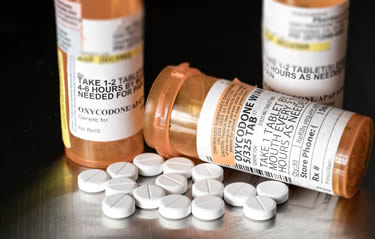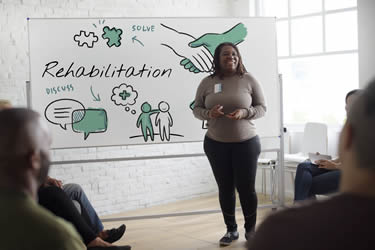
 1-855-378-4228
1-855-378-4228
 1-855-378-4228
1-855-378-4228Finding the right short-term drug rehabilitation facility might be harder than you anticipated. Most people only make a decision to seek treatment in emergency situations arising from physical problems, legal trouble, and overdose as a result of addiction.
Similarly, families are forced to choose even when they have no real knowledge about the different types of treatment available. In the process, they get too emotionally involved to make the right decision about short term drug rehab.
However, before choosing a treatment facility, think about the following considerations:
It is important to understand that short-term drug rehabilitation does not work in all cases. This is particularly so for individuals who have been addicted to alcohol and drugs for many years.
These types of treatments are only effective for addicts who have only been using for a couple of months or so and want to put a stop to it before things get worse. Through such programs, the patient will receive excellent services in a relatively short period - services that might change their lives for the better.
Read on to learn more about short term rehab:
Short-term drug rehabilitation is typically provided on a residential basis. These centers are in-house facilities where the patient will stay over the course of the program. The length of treatment, however, varies from a couple of weeks to around 30 - 45 days.
The main purpose of short term treatment is for the patient to drift from addiction and dependency to complete sobriety. As such, the expectations of the program would be to ensure that the addict is no longer tempted to relapse back to using the substances they had become accustomed to. As such, the programs will provide them with enough time to deal with all the underlying causes and issues that led to their drug and alcohol abuse.
In many cases, short-term drug rehabilitation on a residential basis may cost more than if you sought treatment at an outpatient facility. This is because inpatient centers often require bigger facilities, more security and staff, as well as an elaborate setup.
However, you should still be able to find free residential programs if you cannot afford the cost of treatment for drug and alcohol abuse and addiction. The only problem might be that the staff to patient ratio at a free facility may be higher than at a private one.
Private short-term drug rehabilitation facilities also have the added advantage of a shorter waiting time. However, this also means that the costs will vary anywhere between $3000 and $40,000 - these costs will depend on the staff-to-patient ratios, the quality of the facilities, and the extra amenities, services, and activities provided.
For instance, you would typically have to pay more to enroll into a center by the beach or on an island than you would for one in the country. Of course, these prices also vary from one state to the next while some of the treatment programs that have a stellar reputation tend to cost more.
 The truth is that many people struggle with substance use disorders of a varied nature. Some of the commonly abused drugs and substances include alcohol, nicotine and tobacco, marijuana, crack cocaine, cocaine, meth, heroin, prescription drugs, opioids, opiates, and over the counter medications - among others.
The truth is that many people struggle with substance use disorders of a varied nature. Some of the commonly abused drugs and substances include alcohol, nicotine and tobacco, marijuana, crack cocaine, cocaine, meth, heroin, prescription drugs, opioids, opiates, and over the counter medications - among others.
Even sadder is the fact that few of those who struggle with addiction seek treatment. Most addicts avoid short-term drug rehabilitation and treatment in spite of their desire to change for the better.
While some may feel that the cost of rehab is too high, others simply do not want or feel able to pick themselves up and leave their life of addiction and substance abuse in the near future.
In such cases, short-term drug rehabilitation might prove to be the right solution and the first step in a more comprehensive rehabilitation program. However, this will only work if the center is able to deal with some of the issues the addict is going through before signing them up for a longer term treatment option.
However, even short-term drug rehabilitation comes with its own downfalls. Ideally, the right path to finding sobriety and maintaining it requires that you commit yourself to treatment.
In such a case, long term treatment might be the right solution - a wonderfully successful option for anyone struggling with addiction. Still, most people might not find that this is the feasible path to take.
Some of the disadvantages of short-term drug rehabilitation include but are not limited to:
In the long term, there will be no guided support to steer you in the right direction away from the substances you have been abusing. Addiction is a condition that is difficult to solve - not least overnight.
When you provide a short term fix in the form of detox and rehab, therefore, might not be enough to solve all your problems at a go and for your overall good in the long term. In fact, the wrong treatment center might compel you to feel that you have already overcome your addiction - although this is hardly ever the case.
Although you may stay sober for a couple of weeks, the chances are high that you will relapse back to the lifestyle of addiction and compulsive alcohol and drug use unless you receive additional guided support.
Although some of the short-term drug rehabilitation facilities you will come across address the surface of the causes behind your addiction through therapy and counseling, you need a longer diagnosis for everything to work out perfectly.
This is because most of the people who are addicted to drugs and alcohol also tend to suffer from other emotional and psychological problems - including anxiety and depression. It is because of these problems that most of them turn to these substances in the first place - eventually making their issues even worse than they were before.
Unless the doctors and counselors at the inpatient rehab facilities spend enough time with the patient, it might be difficult to identify, spot, and address these issues.
Not every short-term drug rehabilitation program is created equally. NIDA (the National Institute on Drug Abuse) reports that 40 to 60 percent of all addicts who undergo rehabilitation tend to relapse after the first time they undergo rehab and detox treatment.
In most cases, you will also find that most of the people who seek treatment for their addiction relapse and have to go back to rehab to deal with their problem unless they are completely solved.
That said, short term drug treatment is designed to focus on a variety of addictions. These include but are not limited to:
 Although alcohol might be legal, this does not necessarily mean that it is not a drug. In fact, not only is alcohol a drug, it is also among the most used and abused of substances that eventually lead to violence, disease, and addiction.
Although alcohol might be legal, this does not necessarily mean that it is not a drug. In fact, not only is alcohol a drug, it is also among the most used and abused of substances that eventually lead to violence, disease, and addiction.
Surveys conducted on those apprehended and incarcerated for violent crimes, for instance, show that about 40% of them were drinking or drunk when they committed the offenses for which they were tried, found guilty, and forced to go to jail or prison.
Among those who were caught drinking, the average level of alcohol to blood was found to exceed or be at 3 times the legally permissible limit. This might be due to the fact that drinking is so common among the perpetrators of certain crimes - including intimate partner violence, sexual assault, and murder.
If you or a loved one is addicted to alcohol, you should seek short-term drug rehabilitation. Through such treatment, you can uncover the underlying reasons behind your perpetual drinking, detoxify your body, and find the right solutions to the problems you are facing.
 The CDCP (the Centers for Disease Control and Prevention) reports that more people die on a daily basis from overdoses than from motorcar accidents. This number is now thought to average about 110 people on a daily basis.
The CDCP (the Centers for Disease Control and Prevention) reports that more people die on a daily basis from overdoses than from motorcar accidents. This number is now thought to average about 110 people on a daily basis.
It is because of this reason that illegal drugs are so high on the list of addicts and abusers. Not only are these drugs addictive, they are also readily available to those looking for them.
A recent SAMHSA report also showed that over 25 million people aged above the age of 12 currently use illegal drugs or have used such substances as hallucinogens, heroin, and cocaine in the recent past.
If you are struggling with an illegal drug addiction, you should consider short-term drug rehabilitation. By so doing, you will receive the right care and help to lead you down the path to sobriety and long-term recovery.
 Prescription drugs are issued to patients by physicians and medical doctors. In many cases, they are prescribed innocently because of injuries and surgical procedures that are particularly painful.
Prescription drugs are issued to patients by physicians and medical doctors. In many cases, they are prescribed innocently because of injuries and surgical procedures that are particularly painful.
Drugs like Hydrocodone, morphine, Dilaudid, Vicodin, Lortab, and Oxycontin are all prescribed as an aid to manage pain and allow patients lead productive and happy lives.
What is unfortunate, however, is that many doctors never choose to share their worries that some of the drugs they prescribe as dangerous and highly addictive. Many patients end up becoming addicted quickly. Once their supply of pills and other forms of the drug of choice runs out, they tend to experience painful and uncomfortable withdrawal symptoms.
At that point, the users would be said to be addicted to the prescription drugs. Like with any other kind of addiction, however, short-term drug rehabilitation may prove to be the right choice.
 At times, the short-term drug rehabilitation might be tailored to deal with the mental health disorders that often accompany addiction and substance use disorders. In most cases, people struggling with psychological disorders - such as obsessive compulsive disorder (OCD), depression, post-traumatic stress syndrome (PTSS), and anxiety - might also abuse drugs and alcohol to cope with their problems.
At times, the short-term drug rehabilitation might be tailored to deal with the mental health disorders that often accompany addiction and substance use disorders. In most cases, people struggling with psychological disorders - such as obsessive compulsive disorder (OCD), depression, post-traumatic stress syndrome (PTSS), and anxiety - might also abuse drugs and alcohol to cope with their problems.
Instead of trying to treat their psychological illness, they would opt to turn to alcohol and drugs for temporary relief from the symptoms and signs of the disorder they are suffering from.
These drug crutches sometimes provide relief, but only for a short duration. To ensure that you continue feeling the same relief from the mental health issues, you might continue using addictive substances by taking higher doses.
Before you know it, you would become tolerant to and dependent on the substances you have been using as your escape route. At this point, you may require short-term drug rehabilitation to help you cope with your mental illness and start a new chapter in your life.
 To truly understand the issues underlying an individual with an addition, the short-term drug rehabilitation plans must come with clinical and medical assessments. These assessments may yield a dual diagnosis.
To truly understand the issues underlying an individual with an addition, the short-term drug rehabilitation plans must come with clinical and medical assessments. These assessments may yield a dual diagnosis.
A dual diagnosis occurs when you suffer from both psychological illnesses and addiction to alcohol and/or drugs. In this situation, it is imperative that both conditions are treated - otherwise the trip down to the short term rehab facility might have been all for nothing.
The doctor performing the dual diagnosis evaluation might also closely review the results to determine why the client is addicted. This will make it easier for them to establish the right treatment programs and plans for purposes of raising the chances of success.
There are so many options out there that you might have a hard time finding the right short-term drug rehab facility or program. Luckily, most of the accredited programs you will come across follow a relatively uniform or universal mechanism in their treatment.
Through these unique solutions, you will be able to work through your substance use disorder and addiction while ensuring that they no longer hold you captive as you continue treating your addiction.
For success, the short-term drug rehabilitation program you sign up for should include three main elements: a spiritual component, mental health component, and a medical component.
a) Medical Treatment
The medical team at the short-term drug rehabilitation facility you choose should be trained to diagnose the substance use disorder and help you manage the addiction. They should know how alcohol and drugs respond in different types of metabolisms.
In most cases, you will receive the necessary clinical assessments and tests, as well as services like detoxification. In the process, you will heal physically before you are ready for the psychological aspects of rehabilitation.
b) Mental Health Treatment
It might be difficult to attain balance and wellness in mental health. However, this might be the most rewarding aspect of rehabilitation from drug and alcohol abuse, dependency, and addiction.
The addiction treatment campus you attend will have experienced counselors and therapists who are highly experienced and trained. They will administer, where required, dual diagnosis treatment, and help you address most of the mental health disorders common among substance users - including depression and anxiety. These disorders tend to co-occur with alcohol and drug addiction.
Further, they will listen to your side of the story to better understand the personal challenges that mark out your individual situation. After that, they will guide you on a specific path towards healing and enlightenment - a path that will eventually lead you to sobriety and abstinence from the substances you were addicted to.
c) Spiritual Connection and Growth Counseling
 Last but not least, some of the short-term drug rehabilitation centers - particularly those with a religious or spiritual focus - will counsel you on the path towards improved spiritual connection with a higher being.
Last but not least, some of the short-term drug rehabilitation centers - particularly those with a religious or spiritual focus - will counsel you on the path towards improved spiritual connection with a higher being.
By understanding spirituality, you will get to know that a higher power is watching over you even as you continue struggling with the heavy weight of addiction. To this end, the counselors will help you connect with this higher being and powerful entity.
In the process, you are more likely to relearn the lessons of your childhood and youth. More specifically, you will start relying on and believing in spirituality for love and forgiveness.
This newfound faith may provide the release you need from the excruciating burden of addiction and substance use disorder. You will also get back the life you truly deserve to start living.
Christian-based rehab facilities, in particular, have a high success rate - with some showing a success of as high as 80% or more. This is based on the focus on treatment through spiritual healing.
The above components are essential to wholesome recovery mostly because on the 3 core aspects of what makes us human - the spiritual, the physical, and the intellectual (or mental).
Combined with ongoing recovery and aftercare plans, they work effectively and provide comprehensive treatment from drug and alcohol abuse, dependency, and addiction. Therefore, as long as you sign up for a short-term drug rehabilitation program that covers these three aspects, you should be able to find sobriety and stay away from the substances you were addicted to - for the rest of your life.
As mentioned above, short-term drug rehabilitation depends on a variety of factors. Both residential and outpatient facilities are widely available for addicts looking for private or low-cost services.
Whatever your personal situation, you should expect most, if not all, of the following services when you sign up for Short Term Drug Rehabilitation:
Most short-term drug rehabilitation facilities are designed to provide treatment to addicts who are lacking in time or financial resources. They work as the ideal alternative to long-term treatment - thereby helping many addicts recover from their substance use disorders and fight their conditions.
Traditionally, facilities that only provided treatment on the short term basis were not desirable because people thought they were not effective. However, recent treatment plans and renewed dedication to helping addicts on the road to sobriety has mainstreamed these programs and facilities.
Today, it is easy to find the right short-term drug rehabilitation program based on quality, effectiveness, and success rates. Since most of these programs are listed and explained online, the internet should be the first place you check.
Use the following guide to help you find the right short term treatment facility:
Start by asking how long the short term treatment will last. Most of these facilities will host patients for short periods of time - typically lasting from a week to about a month (although some may require that you stay in the center for longer).
While this time frame might be short in comparison to a long term rehab program, the facilities may also provide follow up and after-care plans and options. This way, you should remain in the program for much longer, albeit on an outpatient basis.
 You might also want to find out more about the types of therapy that will be used for treatment. Most of these programs provide a variety of services. Whereas some are solely focused on detoxification or therapy, others combine the two both in terms of the individual and the group.
You might also want to find out more about the types of therapy that will be used for treatment. Most of these programs provide a variety of services. Whereas some are solely focused on detoxification or therapy, others combine the two both in terms of the individual and the group.
However, you may choose to enroll in a short-term drug rehabilitation center that will go the extra mile to help you lead a healthier lifestyle. As long as the treatment facility you choose incorporates a wide range of options, you should be in good hands.
If you, or a loved one, were found guilty by a court of law for actions related to your drug and alcohol use, it might be preferable if you looked for a treatment facility that specifically caters to clients who are involved with the criminal justice system.
Today, several alcohol and drug rehabilitation programs are directly involved with this system - with some provided short term treatment. As you seek respite from your addiction, it is essential that you remember that crime and substance use disorders are directly linked.
In fact, most of the inmates in federal and state penitentiaries are incarcerated because they committed crimes while under the influence of alcohol or other addictive and intoxicating substances.
Interestingly, many former addicts attribute their sobriety to the fact that this system caught up with them. After taking the chance to fight their addiction, they found themselves undergoing short-term drug rehabilitation - at the end of which they came out stronger and better able to resist the common triggers to their substance abuse.
Recovery from substance abuse and addiction is a lifelong journey. Although the treatment will not be a definition of who you might be as a person, it will be part and parcel of your life. As such, it helps when you maintain positivity in your recovery, remain hopeful about the future, and set specific goals and aspirations to help spur your ability to overcome addiction.
Regardless of how difficult or easy they might be, the goals you set may build up your self-confidence and improve your chances of full recovery and sobriety after undergoing short-term drug rehabilitation. These goals might also:
Achieving recovery, however, is not completely set in stone. As such, you can accomplish this goal in a variety of ways. One of these ways is by setting goals before you go for short-term drug rehabilitation.
Consider the following goals for Short-Term Addiction Rehabilitation:
a) Discard Addiction-Related Items
Consider getting rid of every item that is related to your alcohol and drug addiction. You might, for instance, have a couple of bottles or flasks of alcohol hidden at work, in your car, or even in the house. Alternatively, you may have lighters, ties, spoons, and needles - or even empty bottles of the pills you abuse - in your cabinets, purses, or coat pockets.
All these items will remind you of your past and act to prevent you from focusing on the main goal of recovery and sobriety. Before you go in for short-term drug rehabilitation, consider getting rid of all these reminders.
Although treatment might strengthen your resolve, these items might still trigger reuse and relapse when you feel weak in the future. They may also act as reminders of what you will crave after you check out of short-term rehab.
b) Dealers and User Friends
Where possible, get rid of the contact information for your user friends and dealers. Although you might be fresh out of short-term drug rehabilitation, the people who helped you sustain your substance use disorder will still maintain the same habits.
They may also continue waiting for your moment of weakness to lead you back down the path you are trying to escape. Therefore, it would be in your best interests to get them out of your life for good.
An effective way to do this is to delete their contacts, emails, messages, and calls. You should also block them and distance yourself from their influence. If it is called for, get a new phone and number or consider moving to a different neighborhood to escape their influence.
c) Recovery Sponsors and Local Support Groups
 One of the reasons short-term drug rehabilitation works for some people may be because of their ability to find allies and friends to guide them towards recovery and full sobriety.
One of the reasons short-term drug rehabilitation works for some people may be because of their ability to find allies and friends to guide them towards recovery and full sobriety.
To this end, you might want to lay the solid foundation for your long term recovery by finding your own allies in the form of recovery sponsors and local support groups. Reach out to the other alumni from the rehab program you attended or find a support group you can join.
With time, you will find that the local network you form and the engagement with your sponsor may be the difference between full recovery and constant relapse. This is because the people you associate with tend to influence your thoughts, actions, beliefs, and lifestyle.
d) Former Positive Relationships
Often, as you undergo short-term drug rehabilitation, you will find out that you burned bridges with important family members and friends when you were suffering from substance use disorder.
Although rebuilding these relationships might not be your most important goal, it may eventually require that you get down to it. The process can tend commitment and time, so you should prepare yourself for it.
The best way to go about achieving this goal is by restoring the relationships a person at a time. The process will start with communication - either by email, text, phone, a handwritten note, or in person.
As long as you keep at it, you should be able to bring most if not all of your friends and family members back into your life. These people might form the society that will help you remain sober immediately following and long after you undergo short-term drug rehabilitation.
e) Positive Actions
What may qualify as a positive action differs from one person to the next. Some examples, however, include praying, learning new recipes and cooking new meals, exercising, journaling, praying, meditating, and more.
During rehab and after, commit yourself to these positive actions. They may cue positivity and improvement in your life, and act as a source of encouragement and motivation as you continue battling addiction and the substance use disorders you are suffering from.
At the end of the day, your opportunities for recovery will depend on the facility you choose, the services provided, your mental fortitude as you undergo treatment, and the positive outlook you have on life and on your chances of succeeding.
Although short-term drug rehabilitation does not work for everyone, it might be the crucial turning point that you need to battle your addiction and overcome the substance use disorders that have been plaguing your life.
As always, you should try to get started on treatment as soon as possible. As with any other physical or psychological condition, addiction responds to treatment best when you take action as soon as you suspect you have a problem with alcohol and/or drugs and seek help.